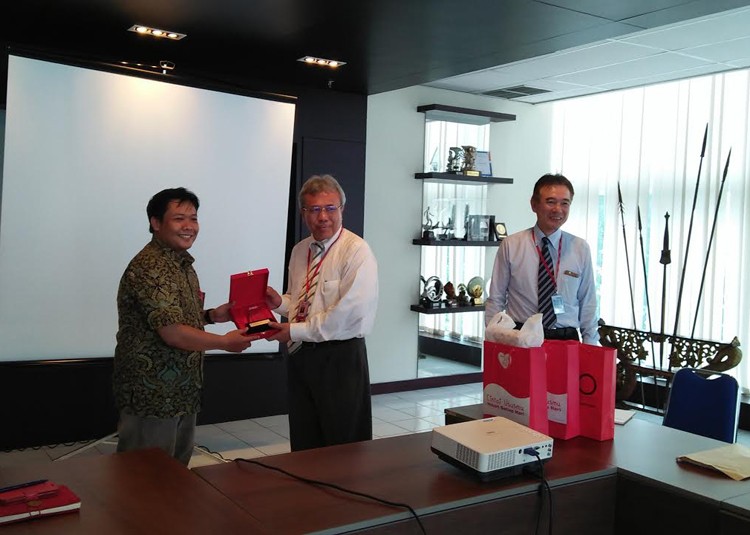Yakult still relies on imported ingredients
Change text size
Gift Premium Articles
to Anyone
 PT Yakult Indonesia Persada marketing communication and commercial director Antonius Nababan (center) hands over a token to The Jakarta Post’s business desk editor Hasyim Widhiarto, while the company’s vice president director, Hiroyuki Kawada, looks on during a recent visit to the Post’s offices. (JP/dra)
PT Yakult Indonesia Persada marketing communication and commercial director Antonius Nababan (center) hands over a token to The Jakarta Post’s business desk editor Hasyim Widhiarto, while the company’s vice president director, Hiroyuki Kawada, looks on during a recent visit to the Post’s offices. (JP/dra)
P
T Yakult Indonesia Persada, one of the major producers of fermented milk products, still relies on imported raw materials for its production in Indonesia.
Yakult Indonesia vice president director Hiroyuki Kawada said the company had to import ingredients because local milk had yet to meet the standards for the company’s fermented milk production.
“We mostly import the skimmed milk from Australia, and the rest is from Belgium,” he said during a meeting with the editorial staff of The Jakarta Post.
Yakult Indonesia Persada, a subsidiary of Japan-based Yakult Honsha, was established in1990. The company operates a factory in Sukabumi, West Java, and another in Mojokerto, East Java. The factories can produce 6.6 million 65-ml bottles of cultured dairy drink a day.
The company sells its fermented milk through supermarkets and through “Yakult Lady”, a sales force of women who sell the product doors-to-door in many parts of the country.
“There are 7,600 Yakult Ladies now, and they can reach 30 houses per day each,” said Antonius Nababan, the companies marketing communication and commercial (MCC) director.
Zulkarnain, the MCC’s senior assistant manager, said sales averaged 5 million bottles a day and claimed that the number of the consumers totaled more than 5 million, assuming a person drinks a bottle of Yakult a day.
Indonesia was the second-biggest market of the Yakult products after Japan, which has 10.18 million consumers. (dra)









